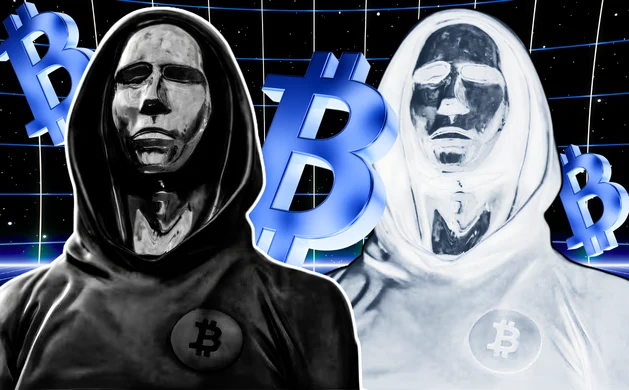Solana Devs Secretly Fixed an "Unlimited" Token Minting Bug

GM. Solana developers quietly patched a critical bug that could’ve enabled unlimited token minting, revealing the high-stakes nature of modern blockchain coordination.
Meanwhile, BitcoinOS demos a bridge-free BTC transfer, VanEck files the first US BNB ETF, and Samourai Wallet asks a judge to toss its case over alleged prosecutorial misconduct.
Here are all the details. 👇
Solana Devs Secretly Fixed an "Unlimited" Token Minting Bug
A severe zero-day vulnerability in Solana’s confidential token program was patched last month after core engineers discovered a flaw enabling unlimited token minting. The Solana Foundation coordinated a stealth update with validators to neutralize the threat before public disclosure.
The bug, identified on April 16 in the ZK ElGamal Proof system, allowed forged proofs to pass verification and bypass minting restrictions on Token-22 assets. By April 18, a supermajority of validators had deployed a dual-patch fix, safeguarding the network without user disruption.
Critics on X questioned the lack of transparency, with some calling the move “collusion,” prompting pushback from Ethereum and Solana developers alike. “Bitcoin, Zcash, and Ethereum have all had instances where the core devs needed to privately plan a secret bug fix,” noted longtime Ethereum contributor Hudson Jameson.
While the affected confidential transfer feature is sparsely adopted, the exploit’s potential scale raised alarms about centralization and emergency coordination. Solana co-founder Anatoly Yakovenko countered by stating, “It’s the same people to get to 70% [consensus] on Ethereum… binance, coinbase, and kraken.”
BitcoinOS Enables Cross-Chain BTC Transfer Without Bridge
BitcoinOS developers demonstrated a cross-chain transfer of 1 BTC to Cardano and back using zero-knowledge proofs instead of a traditional crypto bridge. The transaction relied on xBTC, a wrapped BTC token with cryptographic proof, routed through Cardano’s Sundial Protocol and identity platform Handle. BOS co-founder Edan Yago said the system removes bridge risks and expands Bitcoin’s programmability.
Data posted on-chain shows the BTC was locked and minted into xBTC, then moved across Cardano wallets before being unwrapped back to Bitcoin. BitcoinOS claims this approach reduces exploit risk by avoiding central bridges, which have been targeted in over $2 billion worth of hacks since 2022. The protocol uses BitSNARK, a ZK verification standard open-sourced in March.
VanEck Files First United States BNB ETF Application
Asset manager VanEck filed an S-1 with the SEC on May 5 to launch a spot BNB ETF, marking the first U.S. application tied to Binance’s native token. The proposed fund could stake BNB held in the trust to generate additional rewards or income. BNB, the fourth-largest non-stablecoin crypto, powers Binance’s ecosystem and trades near $595.
VanEck’s filing arrives amid a wave of altcoin ETF proposals, with over 70 crypto-linked applications under SEC review. Bloomberg analyst Eric Balchunas noted the timing followed appearances by Binance founder CZ and VanEck CEO Jan Van Eck at the TOKEN2049 conference. The filing expands VanEck’s footprint in crypto ETFs, which already includes products for Ethereum and Bitcoin.
Samourai Wallet Seeks Case Dismissal Over Withheld Evidence
Lawyers for Samourai Wallet asked a New York court to dismiss charges against its co-founders, citing evidence the government allegedly withheld. They claim prosecutors failed to disclose that FinCEN told them in August 2023 that Samourai didn’t require a money transmitter license. Despite this, the DOJ charged the developers with operating an unlicensed money business and conspiracy in February 2024.
The filing argues the suppression violates the Brady rule, which requires prosecutors to share exculpatory material. Defense attorneys say the lack of disclosure impacted bail decisions and blocked early motions to dismiss. The next hearing is scheduled for July 22, and the DOJ has not responded to the defense’s dismissal request filed under the DOJ’s new crypto memo guidelines.
Data of the Day
SEC filings in April referenced "cryptocurrency" a record 786 times, marking a 38% increase from March and an all-time monthly high. "Stablecoin" mentions more than doubled since January, with April alone seeing 104 references, according to The Block’s latest data analysis. The SEC’s increased language usage suggests growing regulatory focus ahead of potential legislative frameworks.
From 2024 to early 2025, the average monthly mentions of cryptocurrency hovered around 457, but surged in recent months amid broader institutional adoption. Regulators are particularly focused on stablecoin reserve disclosures and consumer protections, which may shape the next stage of policy. Analysts view the language uptick as a sign of crypto's institutional integration and normalization in corporate filings.

More Breaking News
- Tether is entering the AI space with TetherAI, a fully open-source, peer-to-peer AI crypto project that supports Bitcoin and USDT payments.
- Indonesia has suspended Sam Altman’s Worldcoin project over regulatory violations tied to local operators lacking valid digital system permits.
- Israeli authorities arrested Alexander Gurevich, accused of launching the $190M Nomad exploit, as he attempted to flee using a new identity.
- Riot Platforms sold 475 BTC in April, generating $38.8M in its first major Bitcoin sale since early 2024 to support its treasury strategy.
- Maldives signed a $9 billion deal with MBS Global Investments to build a crypto hub aimed at attracting foreign investment and easing debt.
- French police rescued the father of a crypto entrepreneur in a raid near Paris after kidnappers demanded up to $7.9M in crypto ransom.
- Chainlink has launched a community rewards program offering SXT token incentives to LINK stakers and node operators to boost engagement.
- CZ proposed Bitcoin and BNB as Kyrgyzstan’s first crypto reserve assets following his ongoing advisory work with the country’s government.
For the latest updates on digital asset markets, follow us on X @Datawalletcom.

Written by
Jed Barker
Editor-in-Chief
Jed, a digital asset analyst since 2015, founded Datawallet to simplify crypto and decentralized finance. His background includes research roles in leading publications and a venture firm, reflecting his commitment to making complex financial concepts accessible.








